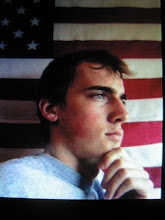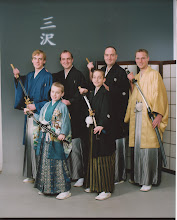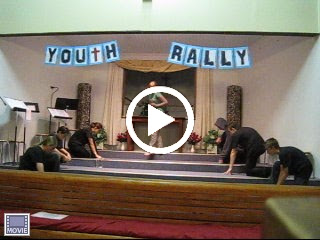Washington was concerned about the morals of his army; he wanted chaplains in the military. He wanted his army to stop swearing and hoped that his chaplains and officers would influence the rest of the army not to swear. Even during the heat of war, he made sure Communion was available.
He cared for the poor and supplied many young men with a chance to get an education. He made huge donations to charitable causes. He would go the local baker and tell him that whatever the poor wanted of his bakery that day to give, and he would pick up the bill. One of his life mottoes was, "Deeds, not words," and his deeds prove his sincere heart.
Another proof of his humility, and pure patriot intentions, was when he returned all the power given him by Congress at the outset of the war. This move startled most of the European courts; they expected him to claim absolute power. But he didn't. He resigned, and he intended it to be one of his last public acts, but he had one more to make. "I consider it as indispensible duty to close the last act of my official life, by commending the interest of our dearest country to the protection of Almighty God."[3]
Washington then went back to his long absent Mount Vernon and private life. The transition went fairly well; every now and again he would wake up in the morning and start giving commands for his army and then remember he was home. He was bombarded by letters and visitors, all thanking him for the service had rendered to the young country. He was happy, and planned on living the rest of his days peacefully on Mount Vernon with his wife. But God had other plans for him.
 In 1789, by unanimous vote, he was elected the first President of the United States. Washington didn't want to return to public life, but another of his mottoes was "for God and my Country," and so he accepted after he realized it was his duty.
In 1789, by unanimous vote, he was elected the first President of the United States. Washington didn't want to return to public life, but another of his mottoes was "for God and my Country," and so he accepted after he realized it was his duty.He warned that he had no political skill and that, "integrity and firmness are all I can promise; these, be the voyage long or short, shall never forsake me." [4]
What more can we ask of our leaders? His first term provided many difficulties for him, but he steered with a steady hand and a unshakable trust in God. The very first thing he did as President was to pray. "In this first official act, my fervent supplications to that Almighty Being….that His benediction may consecrate to the liberties and happiness of the people of the United States…..No people can be bound to acknowledge and adore the invisible hand which conducts the affairs of men, more than the people of the United States."[5]
Washington set the tone for what future presidents should be like. He pursued a fair policy towards the Indians, and said that, "As Americans were more powerful and enlightened than the Indians, they ought to treat them with kindness and liberality." [6]. He also had to establish to the world that America was a sovereign nation. Washington set a moral example for the Americans; he went to church every Sunday, and observed a day of rest. He was punctual to the second and always had a kind word for a passing school child. He was loved by all of the Americans, and easily won a reelection for a second term. When he was at the height of his power, it was suggested to him that he take the title of King, he was disgusted. "Be assured, no occurrence in the course of the war has given me more painful sensations than your existing information of there being such ideas….I must view [it] with abhorrence, and reprehend with severity." [7]
During the second term of his presidency, the French Revolution broke out. America was divided on the issue, some wanted to join the French in the wars it had started with her neighbors, but others wanted to remain neutral. Washington decided it was in the best interest of America to remain neutral. France urged, and threatened America to join them. The British threatened no matter what. He was not shaken. He wanted world peace but knew, "that this could be effected only by the universal influence of the precepts of Jesus. "[8]
At the end of his second term, he decided he was done. He retired to Mount Vernon again where he lived out the rest of his days and died a happy man, 1779. The way he lived his private life is possibly more teachable to us than any public act or legislation that he signed into law. He was humble, trusted God, loved his wife, and loved his country, but more importantly, "he was a Christian."[9]
[1] Life of Washington (Anna C. Reed) p216
[2] Life of Washington (Anna C. Reed) p51
[3] Life of Washington (Anna C. Reed) p205
[4] Life of Washington (Anna C. Reed) p217-218
[5] Life of Washington (Anna C. Reed) p 222-223
[6] Life of Washington (Anna C. Reed) p237
[7] Life of Washington (Anna C. Reed) p269
[8] The Life and Writings of Washington (Jared Sparks) found in the Life of Washington (Anna C. Reed) p270
[9] The Life and Writings of Washington (Jared Sparks) found in the Life of Washington (Anna C. Reed) p273









2 comments:
Jared
Great paper. You may want to check the date of Washington's death again.
Love you
Dad
oh wow...woops!
Post a Comment